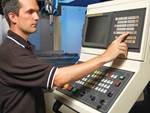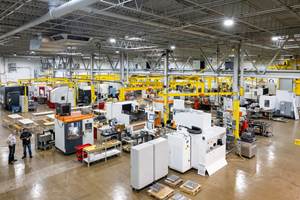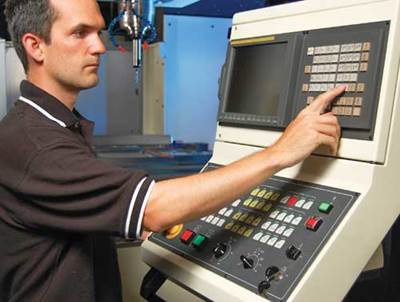Apprenticeship Training
Finding, Training & Retaining Employees, Part 4
In previous articles, we discussed the value of having a structured training plan. Now I would like to explore one of the oldest forms of structured learning: apprenticeship training. Historically, apprenticeship training has been viewed as an essential element to long-term sustainability for any business that employed skilled workers. Nowadays, there is some confusion as to how apprenticeships can be relevant in a modern mold-building environment. Current technology and processes have changed the landscape of the industry, leaving many shop owners and managers wondering if this traditional method of employee development is still the right way to train new people coming into the trade. My response to this is, “Yes.” A modern apprenticeship program is still a highly effective means of building a workforce.
Before diving into how to build an apprenticeship program (in the next article), I would like to address a major roadblock that I have encountered in trying to get companies to use apprenticeship training. One of the most common objections to apprenticeships is the fear of “over-training”. Many managers are concerned that their employees will learn “a bunch of stuff they’re never going to use”.
Due to the greatly increased use of technology and automation in the industry most shops have a workforce with very specialized skills. We have moldmakers who will never touch a CNC machine and CNC machinists who will never build a mold; so with the heavy focus on doing all things value-added, it is sometimes hard to understand where apprenticeship programs fit.
To address these fears, I would like to look at this idea of learning too much. Can anyone really learn too much about this trade? Are our brains designed in such a way that we have to be careful to not hit their capacity? Of course not! Everyone in this trade knows the type of challenges we face. The more we know and the more our skilled workers know will only benefit us in the long run.
Apprenticeship training is as much about preparing a person to be a good machinist today as it is about preparing that same person to be a good project engineer 15 years from now. This is a skilled industry that requires a depth of knowledge. Apprenticeship training builds a foundation that is designed to drive innovation for years to come. It is a long-term investment in the future stability of the company and the industry in general. The key to apprenticeships today is to design a program that it is relevant to our modern industry in both its delivery and substance.
If we are afraid to teach our workers too much about their industry, we will have effectively allowed the misperceptions about what it means to be in a skilled trade to grow. The general population knows very little about this trade and can rarely distinguish between skilled trade manufacturing and production manufacturing. By committing to long-term, in-depth training we will change misconceptions about our industry and attract the top talent we need for the growth opportunities we have in front of us. Our talented workers will be more satisfied and our ability to innovate will continue to be second-to-none.
Related Content
MMT Chats: The Connection Between Additive Manufacturing Education and ROI
This MMT Chat continues the conversation with Action Mold and Machining, as two members of the Additive Manufacturing team dig a little deeper into AM education, AM’s return on investment and the facility and equipment requirements to implement AM properly.
Read MoreCross Training, In-House Capabilities and Collaborative Design Move Helm Tool Forward
Cross-training, bringing it all in-house, molding and collaborative design are essential to Helm Tool's success.
Read MoreThe Role of Social Media in Manufacturing
Charles Daniels CFO of Wepco Plastics shares insights on the role of social media in manufacturing, how to improve the “business” side of a small mold shop and continually developing culture.
Read MoreHands-on Workshop Teaches Mold Maintenance Process
Intensive workshop teaches the process of mold maintenance to help put an end to the firefighting culture of many toolrooms.
Read MoreRead Next
Finding, Training & Retaining Employees
In this multi-part series of articles, contributor Ryan Pohl, a journeyman CNC machinist who also holds a master's degree in industrial training and development, addresses the skilled-labor shortage and its potential to dramatically hinder the future sustainability and growth of the moldmaking industry.
Read MoreHow to Use Continuing Education to Remain Competitive in Moldmaking
Continued training helps moldmakers make tooling decisions and properly use the latest cutting tool to efficiently machine high-quality molds.
Read More





















